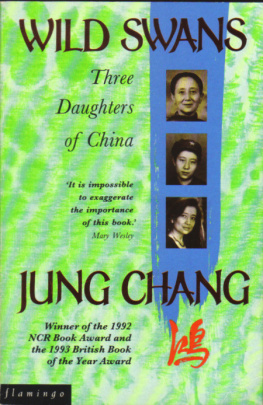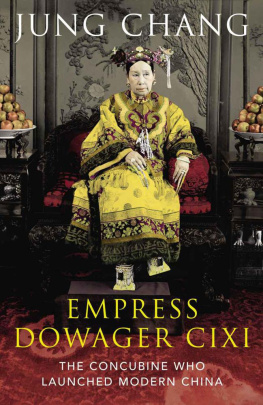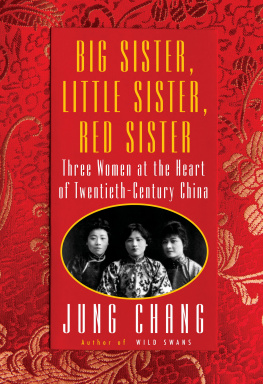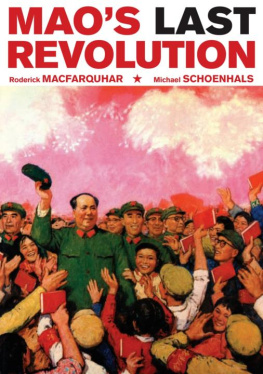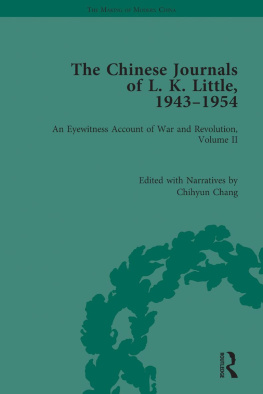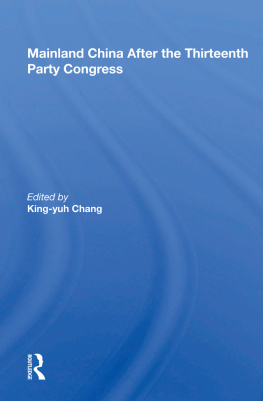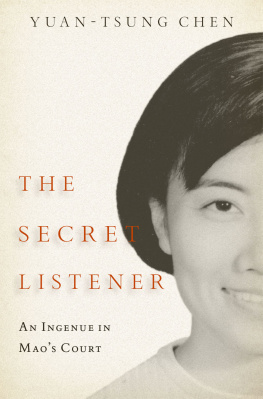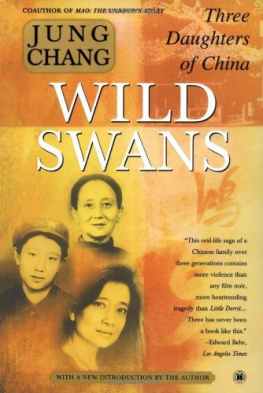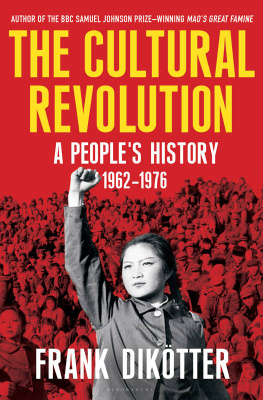Wild Swans
Three daughters of China
Jung Chang
Flamingo An Imprint of HarperCollins Publish 77-85 Fulham Palace Road, Hammersmith, London W6 8JB
Special overseas edition 1992 This paperback edition 1993 59 58 57 56 55 54 53
First published in Great Britain by HarperCollins Publish 1991
Copyright Glohalflair Ltd 1991
ISBN 0 00 637492 1
Printed and bound in Great Britain by Clays Ltd, St. Ives plc
All rights reserved. No part of this publication may be reproduced, stored in a retrieval system, or transmitted, in any form or by any means, electronic, mechanical, photocopying, recording or otherwise, without the prior permission of the publishers.
This book is sold subject to the condition that it shall not, by way of trade or otherwise, be lent, re-sold, hired out or otherwise circulated without the publisher's prior consent in any form of binding or cover other than that in which it is published and without a similar condition including this condition being imposed on the subsequent purchaser.
To my grandmother and my father who did not live to see this book
AUTHOR'S NOTE
My name "Jung' is pronounced "Yung."
The names of members of my family and public figures are real, and are spelled in the way by which they are usually known. Other personal names are disguised.
Two difficult phonetic symbols: X and Q are pronounced, respectively, as shand chIn order to describe their functions accurately, I have translated the names of some Chinese organizations differently from the Chinese official versions. I use 'the Department of Public Affairs' rather than 'the Department of Propaganda' for xuan-chuan-bu, and 'the Cultural Revolution Authority' rather than 'the Cultural Revolution Group' for zhong-yang-well-ge.
ACKNOWLEDGMENTS
Jon Halliday has helped me create Wild Swans. Of his many contributions, polishing my English was only the most obvious.
Through our daily discussions, he forced me into greater clarification of both the stories and my thoughts, and helped me search the English language for the exact expressions. I felt safer under his historian's knowledgeable and meticulous scrutiny, and relied on his sound judgment.
Toby Eady is the best agent anyone could possibly hope for. He helped push me, gently, into taking up the pen in the first place.
I feel privileged to be associated with such outstanding professionals as Alice Mayhew, Charles Hayward, Jack McKeown and Victoria Meyer at Simon & Schuster in New York and Simon King, Carol O'Brien and Helen Ellis at HarperCollins in London.
To Alice Mayhew, my editor at Simon & Schuster, I owe special gratitude for her insightful comments and invaluable dynamism.
Robert Lacey at HarperCollins did a superb job editing the manuscript, for which I am deeply indebted. Ari Hoogenboom's efficiency and warmth on the transatlantic phone have been energizing. I am also thankful to all those who have worked on this book.
The enthusiastic interest of my friends has been a perpetual source of encouragement. To all of them I am most grateful. I have received particular help from Peter Whitaker, I Fu En, Emma Termant, Gavan McCormack, Herbert Bix, R. G. Tiedemann, Hugh Baker, YanJiaqi, Su Li-qun, Y. H. Zhao, Michael Fu, John Chow, Clare Peploe, Andri Deutsch, Peter Simpkin, Ron Sarkar, and Vanessa Green. Clive Lindley has played a special role through his valuable advice from the beginning.
My brothers and sister and my relatives and friends in China have generously allowed me to tell their stories, without which Wild Swans would not have been possible. I can never thank them sufficiently.
Much of the book is the story of my mother. I hope I have done her justice.
JUNG CHANG
London May 1991
1. "Three-Inch Golden Lilies'-Concubine to a Warlord General (1909-1933)
At the age of fifteen my grandmother became the concubine of a warlord general, the police chief of a tenuous national government of China. The year was 1924 and China was in chaos. Much of it, including Manchuria, where my grandmother lived, was ruled by warlords. The liaison was arranged by her father, a police official in the provincial town of Yixian in southwest Manchuria, about a hundred miles north of the Great Wall and 250 miles northeast of Peking.
Like most towns in China, Yixian was built like a fortress. It was encircled by walls thirty feet high and twelve feet thick dating from the Tang dynasty (AD 618-907), surmounted by battlements, dotted with sixteen forts at regular intervals, and wide enough to ride a horse quite easily along the top. There were four gates into the city, one at each point of the compass, with outer protecting gates, and the fortifications were surrounded by a deep moat.
The town's most conspicuous feature was a tall, richly decorated bell tower of dark brown stone, which had originally been built in the sixth century when Buddhism had been introduced to the area. Every night the bell was rung to signal the time, and the tower also functioned as a fire and flood alarm. Yixian was a prosperous market town.
The plains around produced cotton, maize, sorghum, soybeans, sesame, pears, apples, and grapes. In the grassland areas and in the hills to the west, farmers grazed sheep and cattle.
My great-grandfather, Yang Ru-shan, was born in 1894, when the whole of China was ruled by an emperor who resided in Peking. The imperial family were Manchus who had conquered China in 1644 from Manchuria, which was their base. The Yangs were Han, ethnic Chinese, and had ventured north of the Great Wall in search of opportunity.
My great-grandfather was the only son, which made him of supreme importance to his family. Only a son could perpetuate the family name without him, the family line would stop, which, to the Chinese, amounted to the greatest possible betrayal of one's ancestors. He was sent to a good school. The goal was for him to pass the examinations to become a mandarin, an official, which was the aspiration of most Chinese males at the time. Being an official brought power, and power brought money. Without power or money, no Chinese could feel safe from the depredations of officialdom or random violence. There had never been a proper legal system. Justice was arbitrary, and cruelty was both institutionalized and capricious. An official with power was the law. Becoming a mandarin was the only way the child of a non-noble family could escape this cycle of injustice and fear. Yang's father had decided that his son should not follow him into the family business of felt-making, and sacrificed himself and his family to pay for his son's education. The women took in sewing for local tailors and dressmakers, toiling late into the night.
To save money, they turned their oil lamps down to the absolute minimum, causing lasting damage to their eyes. The joints in their fingers became swollen from the long hours.
Following the custom, my great-grandfather was married young, at fourteen, to a woman six years his senior. It was considered one of the duties of a wife to help bring up her husband.
The story of his wife, my great-grandmother, was typical of millions of Chinese women of her time. She came from a family of tanners called Wu. Because her family was not an intellectual one and did not hold any official post, and because she was a girl, she was not given a name at all.
Being the second daughter, she was simply called "Number Two Girl' (Er-ya-tou). Her father died when she was an infant, and she was brought up by an uncle. One day, when she was six years old, the uncle was dining with a friend whose wife was pregnant. Over dinner the two men agreed that if the baby was a boy he would be married to the six-year-old niece. The two young people never met before their wedding. In fact, falling in love was considered almost shameful, a family disgrace. Not because it was taboo there was, after all, a venerable tradition of romantic love in China but because young people were not supposed to be exposed to situations where such a thing could happen, partly because it was immoral for them to meet, and partly because marriage was seen above all as a duty, an arrangement between two families. With luck, one could fall in love after getting married.
Next page
